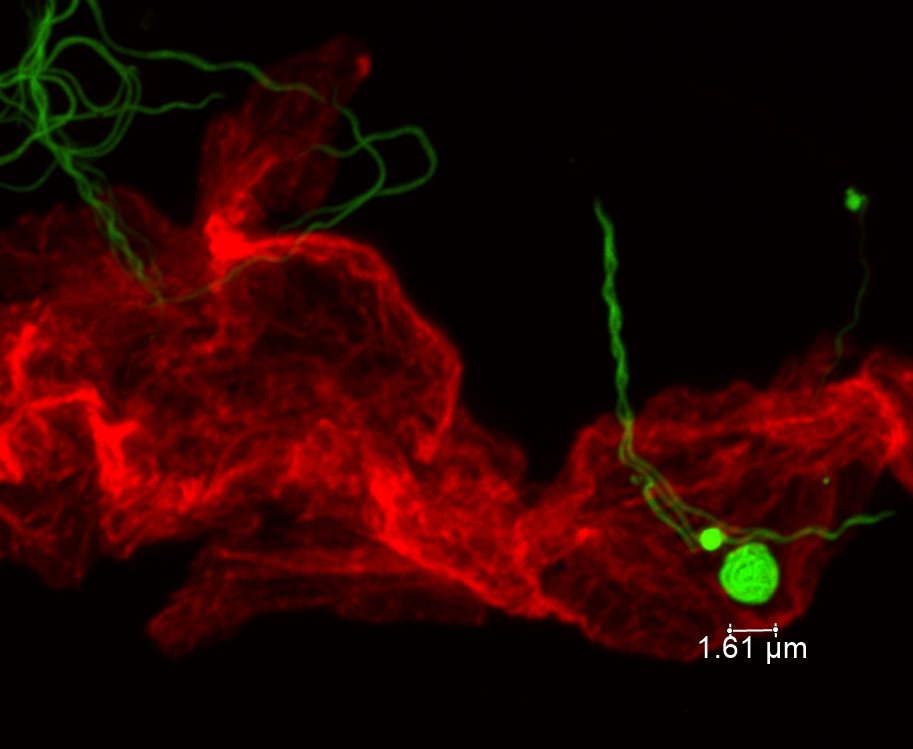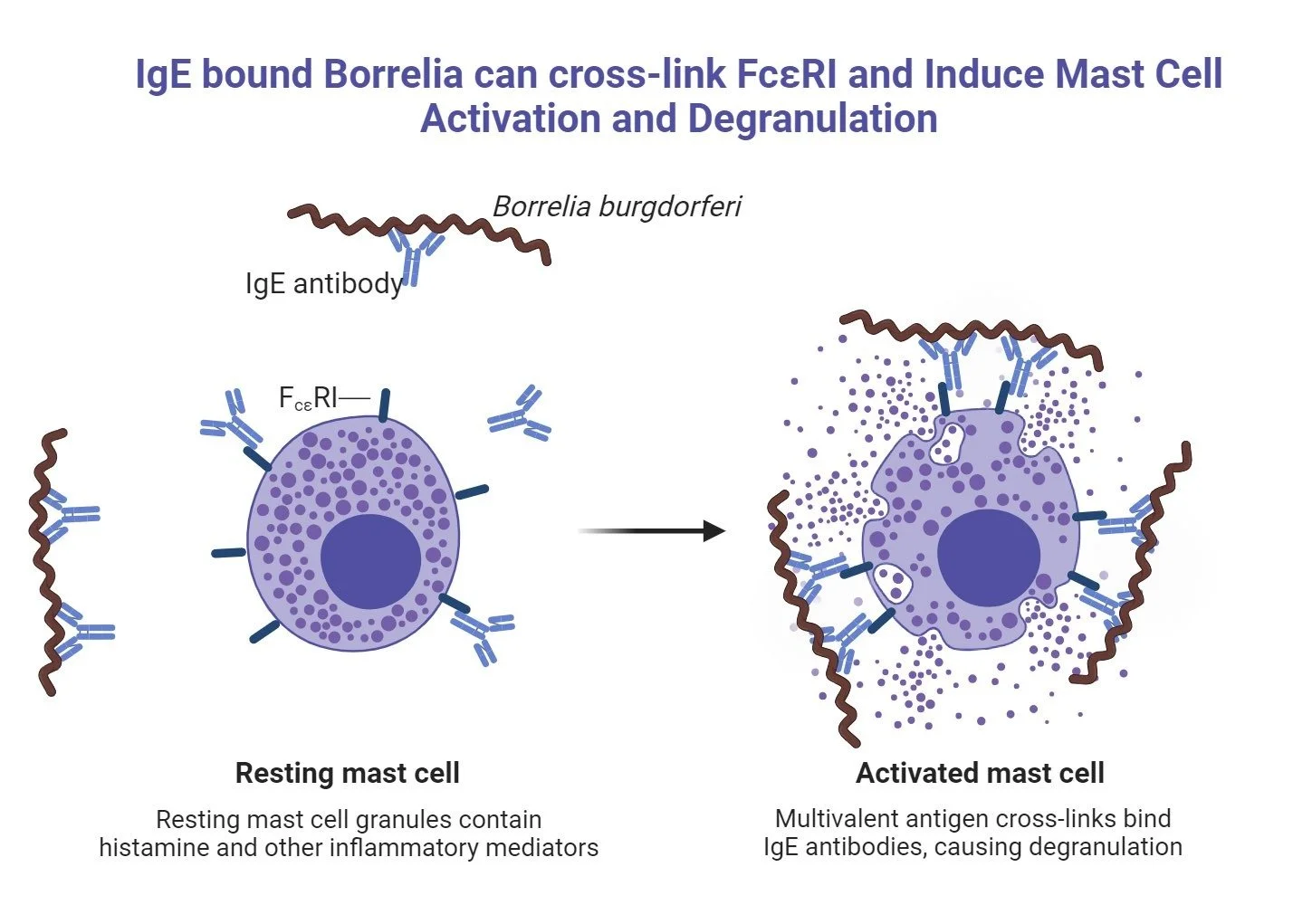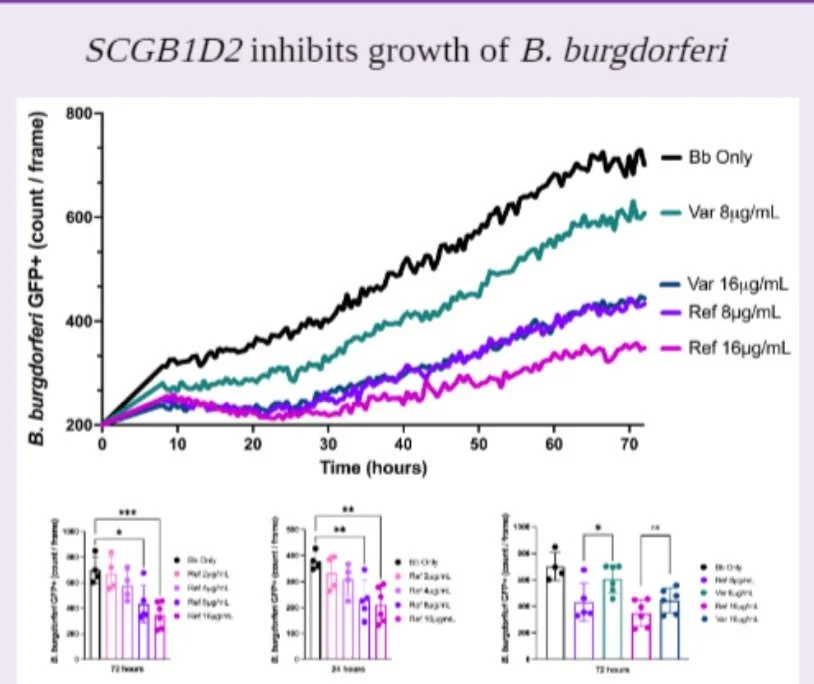
TAL RESEARCH GROUP
Pioneering Infection-Associated Chronic Illness Research
The Tal Research Group at MIT is an immunoengineering lab mapping the trajectory of immune responses to infection.
We study chronic Lyme and acute Lyme disease, Long Covid, and ME/CFS (myalgic encephalomyelitis/chronic fatigue syndrome), and their associated pathologies and co-occurring conditions.
We conduct translational, clinically significant research to advance understanding, diagnostics, and treatments for these complex chronic illnesses. We build innovative predictive diagnostic tools that accelerate knowledge of disease trajectories and biomarkers. Led by Dr. Mikki Tal, our interdiscliplinary research uses cutting edge technology to fill in key knowledge gaps and identify impactful findings.
We are based in the MIT Department of Biological Engineering and in the MIT Center for Gynepathology Research.
Research Topics
We seek to conduct innovative, high-impact research exploring unanswered questions about how people develop chronic illness after infection and who is at greatest risk for these complex illnesses.
Sex differences in chronic illnesses and in immune responses to infection
Research on sex differences in disease mechanisms, clinical presentations, and trajectories, and the roles of the immune system and sex hormones in these differences.Predictive diagnostics: Immune-based tests to predict who develops chronic illness and who recovers after infection
We developed and are trialing innovative new testing that may predict who will develop chronic illness after infection. This is currently focused on acute and chronic Lyme disease, and we hope to expand this testing to Long COVID and ME/CFS.Immunological, neurological and other mechanisms of chronic illness
This includes antibody research and deep immune profiling of pathological responses to infectious triggers. In our MAESTRO clinical study, we are using cutting-edge, non-invasive, neurocognitive and neurological testing to measure cognitive impairment, brain waves and brain electrical activity, eye movement tracking, autonomic dysfunction, brain blood flow, and more.Potential biomarkers of infection-associated chronic illnesses
We are looking for new biomarkers of chronic disease in our clinical study, where we collect six different types of non-invasive biological samples.Immune - pathogen interactions
We study how pathogens interact with the immune system, such as potentially triggering allergy or evading immune responses to proliferate. We are particularly interested in the implications of this research for the development of effective treatments for infection-associated illnesses, especially acute and chronic Lyme disease.Connections across similar and co-occuring chronic illnesses
Chronic Lyme, Long COVID, ME/CFS, Dysautonomia/POTS, mast cell activation disorders, endometriosis, fibromyalgia, and connective tissue disorders like hypermobile Ehlers-Danlos syndrome. We study their overlaps and comorbidities; shared pathophysiology, pathomechanisms, symptoms and risk factors; and similarities and differences across this group of illnesses in a research unit called Project Connect at MIT, led by Research Scientist Beth Pollack.Mouse models of infection-associated chronic illnesses and immune responses to infection
We have a particular focus on organ pathology in murine research on acute and chronic Lyme disease.Environmental exposures and relative risk for acquiring infection-associated chronic illnesses
We seek to explore the impacts of environmental exposures, such as to toxic chemicals and mold, in illness development and trajectories.Connective tissue damage and disorders in infection-associated chronic illnesses
We assess for skin integrity and hypermobility in our MAESTRO clinical study. In our Project Connect at MIT research, we explore mechanisms of connective tissue damage and disorders in infection-associated chronic illnesses, as well as related spinal conditions. This area of research is led by Beth Pollack. We are also working on a case study on a potential therapeutic.Mechanisms of reproductive conditions in infection-associated chronic illnesses
This includes mouse models of reproductive and gynecological conditions similar to endometriosis.
Select Research Projects
We’ve launched the largest clinical study in MIT history!
Learn about our innovative, multi-illness MAESTRO study to uncover mechanisms of acute and chronic Lyme and Long Covid, and compare across illnesses. We also hope to add an ME/CFS cohort, and we screen for dysautonomia and connnective tissue disorders in the study.
Dr. Tal in the lab sorting cells on a flow cytometer.
We utilize and develop cutting-edge technology for immune profiling.
NEWS
The Boston Globe Profiled Our Research
The Tal Research Group “is already discerning differences in the ratios among various types of antibodies in Lyme patients before they even start taking their initial course of antibiotics. The configurations look different in those who will be fine after treatment, versus those who just get sicker and sicker.”
The Tal Research Group is awarded the NIH’s first ever grant funding to study chronic Lyme disease!
Click here to read the NIH press release.
“Broadening our understanding of PTLDS may also contribute to our knowledge of a broader set of infection-associated chronic illnesses, such as Long COVID and Myalgic Encephalomyelitis/Chronic Fatigue Syndrome (ME/CFS). Without understanding the biologic processes of these conditions, it will be very difficult to develop effective clinical interventions.”















